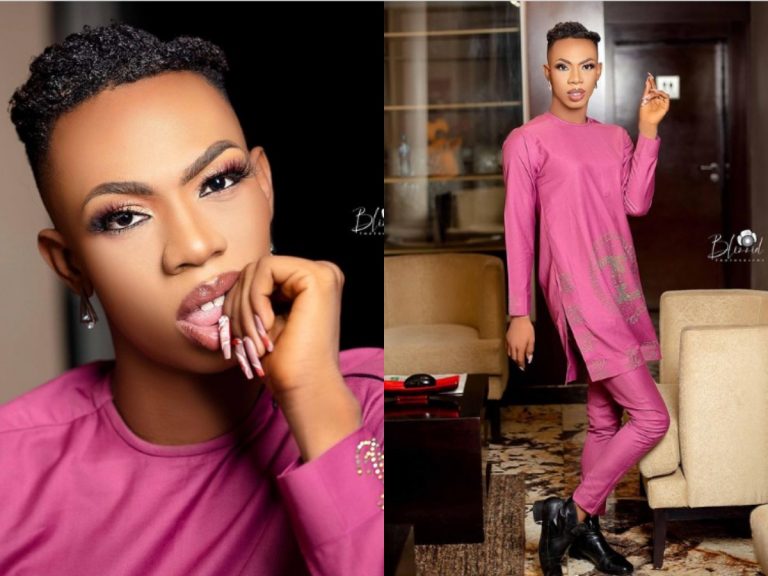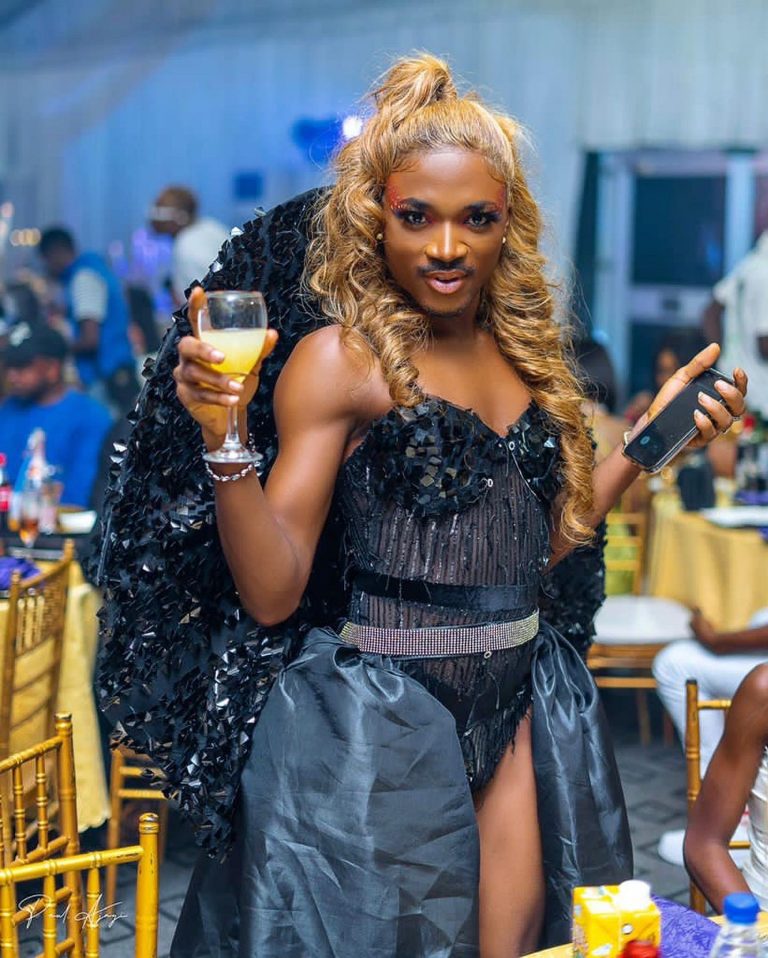Dear Beamers,
Greetings!
The pace of our society is accelerating rapidly, and perhaps it is time to pause and ask ourselves some critical questions. Where are our morals? Where is our society heading when individuals no longer wish to be themselves but aspire to be someone else? Everyone asserts their right to do as they please and to imitate whatever is presented to them. While we claim ownership of our bodies, we must not deceive ourselves about who truly owns our lives and souls—the one who created us. Would God be pleased with what we are becoming? Hence, this week’s newsletter aims to address the rising trend of crossdressing in Nigeria, examining it as a form of identity, and seeking to prevent it from adversely affecting the lives of the men involved and the cultural integrity of the nation.
In recent years, social media in Nigeria has been inundated with images of young and middle-aged men dressing and behaving like women. A few men, seemingly confused about their gender, have leveraged technology to gain notoriety. While some have adopted this practice for entertainment or content creation by mimicking feminine behavior, others, indulging in fantasies of being women, have chosen to dress as women in the hope of gaining societal acceptance.
Though not widely accepted, crossdressing is sometimes employed in content creation for entertainment or educational purposes, such as depicting the behaviors of African mothers or illustrating the humorous actions of women in various situations by male content creators. However, using crossdressing as an escape from the reality of being a man, and expecting others to embrace this self-proclaimed new identity, is concerning. Why would a biological man desire society to affirm his identity as female, despite clear physical attributes and hormones indicating otherwise?
“It’s unclear who exactly started this trend in Nigeria, Denrele Edun is often credited with popularizing it in the media. He entertained many, but a many Nigerians strongly opposed it. Nigeria values its cultural traditions, and crossdressing isn’t something to be considered normal. Now, it has become normal, and controlling it will be challenging, especially since it wasn’t addressed early on when Edun was pioneering it. The Gen Z sees crossdressing as a form of self-expression and content creation. I hope that’s all that is to it.” Says Sonuga Samson
Realistically, accepting ourselves as we are is crucial. A man striving excessively, physically, emotionally, and in all expressions, to be a woman is deceiving his conscience and living a false life. Nature recognizes only two genders, as recorded in the ancient scrolls of history, unless there is a missing piece that the world needs to be educated about. Just as no one had a choice in selecting their race, financial background, parents, nation, or several other birth conditions, the same applies to gender.
Molokwu Destiny, a sociologist, believes that crossdressing among males stems from an attempt to evade gender-specific responsibilities. In his words
“The challenges faced by each gender are tough, but considering the societal expectations and responsibilities placed on men, some opt to escape into femininity through crossdressing. This can be seen as avoiding responsibility and a sign of weakness, relying on mediocrity. When they dress in female attire and expect acceptance, they need to realize that the world still perceives them as men. They need to face their challenges and responsibilities like the men they truly are.”
In some cases, young men in various parts of Nigeria have allegedly committed fraud by presenting themselves as women in online chats and conversations. Some are convincing enough, using makeup and sultry costumes, to attract the attention of men in bars and hotels. Initially, it might seem amusing that some men could be so easily deceived by their fellow men. However, the focus has primarily been on the men who were defrauded, rather than on those who dressed as women to commit these crimes. This indicates that the trend of crossdressing is gradually gaining acceptance among Nigerians.

It is highly controversial that brands exploit the media influence of certain crossdressers to promote their products. Some crossdressers are paid to endorse various brands, particularly cosmetics and clothing aimed at women, who constitute the majority of the audience engaging with such content. The comments on these posts are often from women, praising and encouraging the crossdressers’ exploration of female identity and its uniqueness. In turn, high-earning crossdressers frequently flood social media with images of cash and other expensive items, reportedly gifted by male lovers whose identities remain undisclosed.
Bamidele Ayodele, a Nigerian student, believes it is shameful that crossdressers have connections with high-profile and affluent men. In his words,
Bobrisky has undeniably gained celebrity status by portraying himself and dressing as a woman. We’ve witnessed his transformation from a dark-skinned man to a light-skinned woman who now travels internationally and earns money from Nigerian fans who pay to take pictures with him. This situation is shocking and disturbing, especially since him and his fellow crossdressers claim connections with wealthy and influential men.
He added, “Before, Nigerians opposed his fashion, but nowadays, many seem to support him, and he has influenced more men to adopt similar styles. I hope Nigeria never reaches a point where same-sex marriage is legalized because everyone is still pretending that everything is normal.”
Through this adopted lifestyle, many crossdressers have risen from obscurity to national and global prominence. Some grant interviews to media outlets interested in their stories and earn millions from meet-and-greet events that attract people from all over the country. These activities create an environment that normalizes this lifestyle, leading younger individuals to believe it is a viable path to fame. They see it as merely requiring the simple skills of wearing women’s clothing, adopting feminine gestures and postures, and speaking like a woman. Ultimately, this trend causes society to deviate further from the culturally accepted norms that have been passed down through generations.
Interestingly, in addition to well-known figures who have embraced the trend, a few lesser-known individuals are also attempting to gain fame by dressing and behaving like females. Some young boys have chosen these popular crossdressers as their role models, and these prominent figures have encouraged a sense of confidence in self-identity. While these young boys may not yet be prominently featured on screens, they represent a potential latent force, awaiting the legal age of emancipation from parental and societal constraints. This situation underscores poor parenting and lack of elderly intervention to prevent these aspirations.
Akrong Susan, a student at a Nigerian university, believes that parents are inadvertently facilitating the path for male children to become crossdressers. In her words,
“Sometimes parents project their dreams and fantasies onto their children, especially mothers who may have hoped for a daughter to share clothes and experiences with but ended up with a son instead. In such cases, boys are often treated as if they were girls, especially if the first child is a boy. Mothers may style his hair, apply makeup, and dress him in feminine clothing. As the boy grows up accustomed to this treatment, he may struggle to embrace his true identity as a boy and instead find comfort in crossdressing. In an attempt not to take responsibility, these same parents may later attribute their child’s crossdressing to spiritual issues, unaware that their own actions contributed to his confusion about his identity.”
As some of us mature, we naturally shed behaviors and habits that no longer align with our evolving responsibilities and maturity. Initially, many believed that they would outgrow certain behaviors as they aged and became less rebellious. However, this laissez-faire attitude of a society lacking strong guardianship has allowed serious challenges to societal norms to emerge. This casual approach is gradually fostering a generation where individuals seek to evade the responsibilities of their birth gender, opting instead to transition from men to women overnight. If there has been no defined effort to address this trend, then it is clear that such action is urgently needed to restore the fading moral fabric of our society.

Amidst these unavoidable controversies, a recurring concern in discussions about crossdressers is the assumption that they may be gay. It is commonly understood that being gay means being sexually attracted to someone of the same gender. However, labeling crossdressers in this manner may be unjustified and misplaced. While they dress and behave in a manner that projects a feminine image, such assumptions can alarm heterosexual men who fear being mistakenly attracted to someone they perceive as gay.
With each passing day, more and more young men are boldly embracing this unconventional trend, spreading across every corner of the country. Many crossdressers have fully immersed themselves in this new way of life, showing little concern for public opinion. They maintain a confident demeanor, pursuing what brings them personal satisfaction despite facing criticism and judgment in both society and on social media. Indeed, it cannot be denied that they are exercising a universal human right—freedom of expression. As long as their actions do not infringe upon the rights of others or subject them to servitude, they are entitled to make decisions that align with their personal comfort and identity.
The growing prevalence of crossdressing as a form of identity in Nigeria is undeniably concerning and poses a significant threat to our cultural norms. Its rapid emergence and increasing acceptance highlight the erosion of morals and values within Nigerian society, influenced by Westernization and its associated influences. It is evident that if this issue is not promptly addressed, more alarming trends could emerge in the future, jeopardizing societal stability. While such practices may be embraced in Western societies, Nigerians must remain rooted in our cultural heritage and refrain from adopting practices that promote a false identity divergent from our authentic selves.




